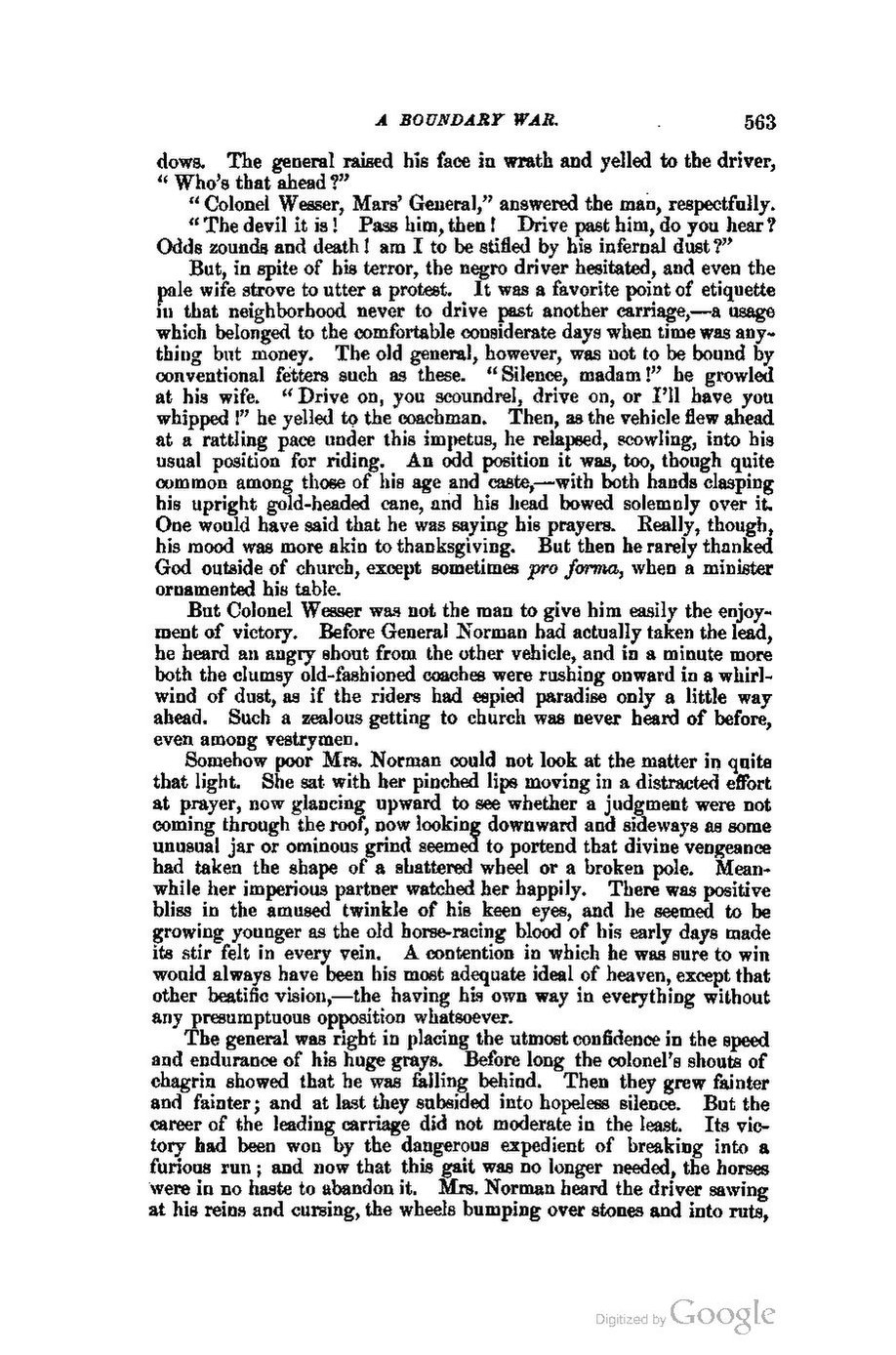dows. The general raised his face in wrath and yelled to the driver, “Who’s that ahead?”
“Colonel Wesser, Mars’ General,” answered the man, respectfully.
“The devil it is! Pass him, then! Drive past him, do you hear? Odds zounds and death! am I to be stifled by his infernal dust?”
But, in spite of his terror, the negro driver hesitated, and even the pale wife strove to utter a protest. It was a favorite point of etiquette in that neighborhood never to drive past another carriage,—a usage which belonged to the comfortable considerate days when time was any thing but money. The old general, however, was not to be bound by conventional fetters such as these. “Silence, madam!” he growled at his wife. “Drive on, you scoundrel, drive on, or I’ll have you whipped!” he yelled to the coachman. Then, as the vehicle flew ahead at a rattling pace under this impetus, he relapsed, scowling, into his usual position for riding. An odd position it was, too, though quite common among those of his age and caste,—with both hands clasping his upright gold-headed cane, and his head bowed solemnly over it. One would have said that he was saying his prayers. Really, though, his mood was more akin to thanksgiving. But then he rarely thanked God outside of church, except sometimes pro forma, when a minister ornamented his table.
But Colonel Wesser was not the man to give him easily the enjoyment of victory. Before General Norman had actually taken the lead, he heard an angry shout from the other vehicle, and in a minute more both the clumsy old-fashioned coaches were rushing onward in a whirl wind of dust, as if the riders had espied paradise only a little way ahead. Such a zealous getting to church was never heard of before, even among vestrymen.
Somehow poor Mrs. Norman could not look at the matter in quite that light. She sat with her pinched lips moving in a distracted effort at prayer, now glancing upward to see whether a judgment were not coming through the roof, now looking downward and sideways as some unusual jar or ominous grind seem to portend that divine vengeance had taken the shape of a shattered wheel or a broken pole. Meanwhile her imperious partner watched her happily. There was positive bliss in the amused twinkle of his keen eyes, and he seemed to be growing younger as the old horse-racing blood of his early days made its stir felt in every vein. A contention in which he was sure to win would always have been his most adequate ideal of heaven, except that other beatific vision,—the having his own way in everything without any presumptuous opposition whatsoever.
The general was right in placing the utmost confidence in the speed and endurance of his huge grays. Before long the colonel’s shouts of chagrin showed that he was falling behind. Then they grew fainter and fainter; and at last they subsided into hopeless silence. But the career of the leading carriage did not moderate in the least. Its victory had been won by the dangerous expedient of breaking into a furious run; and now that this gait was no longer needed, the horses were in no haste to abandon it. Mrs. Norman heard the driver sawing at his reins and cursing, the wheels bumping over stones and into ruts,
